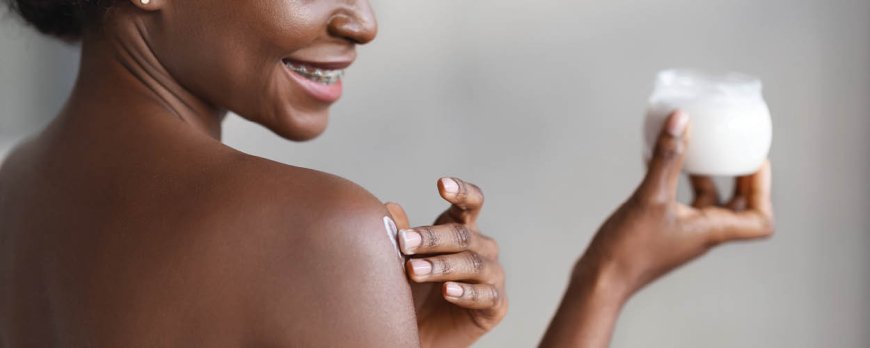Why is my face textured and itchy?
Explore 'Why is my face textured and itchy?' Discover causes, treatments & helpful tips to soothe your skin and restore its healthy glow.

Why is my face textured and itchy?
Many individuals experience the discomfort of having a textured and itchy face, but what exactly causes these symptoms and how can they be treated?
Key Takeaways:
- Dry skin, bug bites, and various skin conditions can cause textured and itchy skin on the face.
- Preventative measures for dry skin include using mild cleansers and moisturizing regularly.
- Home treatments for bug bites include cleaning the area and using cold compresses.
- Treatment for skin conditions may involve topical medications and antihistamines.
- Itchy skin on the face can also be a symptom of underlying health issues.
Understanding Face Texture and Itch
Textured and itchy skin on the face can be attributed to several underlying factors, including dryness, bug bites, and various skin conditions. Understanding the causes of face texture and itch is crucial in order to effectively manage and treat these symptoms.
Dry skin on the face is a common cause of texture and itchiness. Factors such as frequent washing, exposure to harsh chemicals, and low air humidity can contribute to dryness. To prevent dry skin, it is important to use warm water for washing, choose a mild, fragrance-free cleanser, limit bath and shower time, and apply moisturizers immediately after bathing or showering.
Bug bites can also cause itching on the face. When dealing with bug bites, it's important to clean the affected area, apply cold compresses to reduce swelling and itching, take over-the-counter pain relievers for discomfort, and use antihistamines to alleviate itching.
Skin conditions such as eczema, psoriasis, and rosacea can also cause textured and itchy skin on the face. Common symptoms of these conditions include redness, irritation, and flaking. Specific treatment options for these conditions will depend on the individual diagnosis, but may include topical medications, calamine lotion, and antihistamines.
Itchy skin on the face can sometimes be a symptom of underlying health issues. Conditions such as kidney, liver, or thyroid problems, diabetes, and HIV can all manifest as facial itching. Treatment for pruritus associated with these conditions will depend on the underlying cause and may involve systemic medications, antihistamines, and opioid receptor antagonists.
Allergic reactions to substances such as nickel, poison ivy, poison oak, and marine life can also cause itching on the face. Treatment for allergic reactions may involve using steroid creams or ointments and taking antihistamines to reduce inflammation and alleviate itching.
Some medications can cause itchy skin as a side effect. If experiencing itchiness as a result of medication, it is important to consult with a healthcare professional. Depending on the severity of the itch, they may recommend alternatives or adjustments to the medication regimen.
In some cases, nerve damage can cause localized itching on the face. Treatment options for pruritus due to nerve damage may include using local anesthetics, taking medications like gabapentin, or using capsaicin patches.
If you are experiencing persistent or severe itching on the face, it is advisable to consult with a doctor or dermatologist for an accurate diagnosis. Other symptoms that may indicate an underlying condition include nausea, abdominal pain, jaundice, fatigue, muscle weakness, diarrhea, frequent urination, and persistent thirst. Additional testing or examination may be necessary to determine the exact cause of the itch and to develop an appropriate treatment plan.
Overall, managing and treating textured and itchy skin on the face will depend on the specific underlying cause. It may involve a combination of lifestyle changes, home remedies, and medical treatments. By understanding the root causes and seeking professional advice, individuals can find relief from the discomfort of textured and itchy skin on the face.
Dry Skin on the Face
Dry skin on the face is a common culprit for texture and itchiness, but there are several steps you can take to alleviate these symptoms. Factors such as frequent washing, exposure to harsh chemicals, and low air humidity can all contribute to dry skin. To prevent and manage dryness, it's important to adopt a gentle skincare routine.
First, opt for warm water for washing instead of hot water, as hot water can strip the skin of its natural oils. Choose a mild, fragrance-free cleanser that won't further irritate your skin. Avoid scrubbing or rubbing your face vigorously; instead, gently pat your skin dry with a soft towel. To lock in moisture, apply a moisturizer immediately after bathing or showering.
Preventative measures for dry skin on the face include:
- Using warm water for washing
- Choosing a mild, fragrance-free cleanser
- Limiting bath and shower time
- Applying moisturizers immediately after bathing or showering
In addition to these measures, consider using a humidifier in your home to add moisture to the air. Drinking plenty of water can also help keep your skin hydrated from the inside out. If dryness persists or is accompanied by other concerning symptoms, it is advisable to consult with a dermatologist for further evaluation and appropriate treatment.

Bug Bites and Itching on the Face
Insect bites on the face can lead to uncomfortable itching, but there are several simple remedies that can help alleviate the irritation. When dealing with bug bites, it's important to clean the affected area gently with soap and water to remove any dirt or bacteria. Applying a cold compress, such as an ice pack or a washcloth soaked in cold water, can help reduce swelling and soothe the itchiness. Over-the-counter pain relievers like ibuprofen or acetaminophen can provide temporary relief from any pain or discomfort.
If the itchiness persists, antihistamines can be taken to reduce the body's allergic response to the bug bite. It's important to follow the recommended dosage and consult a healthcare professional if symptoms worsen or do not improve.
For immediate relief, topical treatments like hydrocortisone cream or calamine lotion can be applied directly to the bite. These products can help reduce inflammation and relieve the itch. However, it's essential to read and follow the instructions on the packaging carefully. If you experience symptoms such as difficulty breathing, dizziness, or severe swelling, seek medical attention immediately as these may indicate an allergic reaction that requires urgent medical intervention.
Prevention is key in avoiding bug bites on the face. Wearing protective clothing, such as long sleeves and hats, can reduce exposure to insects. Additionally, using insect repellents containing DEET or picaridin can be effective in preventing bug bites. Avoiding known bug-infested areas and keeping windows and doors screened can also help decrease the risk of bites. If you frequently spend time outdoors, it's advisable to regularly check for and remove any standing water in your surroundings that may attract mosquitoes.

Skin Conditions and Itching on the Face
Skin conditions are often responsible for causing both texture and itching on the face, with conditions like eczema, psoriasis, and rosacea being frequent culprits. These conditions can cause the skin to become inflamed, resulting in rough texture and intense itching. Understanding these skin conditions and their triggers can help in managing and treating the symptoms effectively.
- Eczema: Eczema, also known as atopic dermatitis, is a chronic condition characterized by dry, itchy, and inflamed skin. Common triggers for eczema flare-ups on the face include allergens, stress, temperature changes, and irritants like harsh soaps and detergents. Gentle cleansing with mild, fragrance-free products, regular moisturizing, and avoiding known triggers can help manage eczema symptoms.
- Psoriasis: Psoriasis is an autoimmune condition that causes the skin cells to multiply rapidly, leading to raised, red plaques covered with silvery scales. It can affect any part of the body, including the face. Psoriasis flare-ups on the face can be triggered by stress, certain medications, infections, and changes in weather. Treatment options for facial psoriasis include topical medications, phototherapy, and systemic medications prescribed by a healthcare professional.
- Rosacea: Rosacea is a chronic skin condition that primarily affects the face, causing redness, visible blood vessels, bumps, and pustules. It can also lead to facial itching and a sensation of stinging or burning. Triggers for rosacea flare-ups vary among individuals but can include exposure to sunlight, hot or spicy foods, alcohol, and certain skincare products. Avoiding triggers, protecting the skin from sun exposure, and following a gentle skincare routine are key in managing rosacea symptoms.
If you suspect you have any of these skin conditions or are experiencing persistent texture and itching on your face, it is recommended to consult with a dermatologist who can provide an accurate diagnosis and appropriate treatment plan tailored to your specific needs. They may prescribe topical creams or ointments, oral medications, or recommend lifestyle changes to help manage the condition effectively.
Remember, everyone's skin is unique, and what works for one person may not work for another. It's essential to listen to your skin, be patient, and work closely with a healthcare professional to find the best approach to manage and treat textured and itchy skin on your face.
Underlying Health Issues and Facial Itching
While itchy skin on the face can be attributed to external factors, it can also be a symptom of underlying health issues that require further medical attention. In some cases, facial itching may indicate an underlying condition such as kidney, liver, or thyroid problems, diabetes, or even HIV. Therefore, it is important to pay attention to other accompanying symptoms such as nausea, abdominal pain, jaundice, fatigue, muscle weakness, diarrhea, frequent urination, and persistent thirst.
If you experience persistent or severe facial itching along with these symptoms, it is advisable to seek medical advice from a doctor or dermatologist. They can perform a thorough evaluation and conduct any necessary tests to determine the underlying cause of the itch. Treatment for facial itching associated with underlying health issues will vary depending on the specific condition diagnosed.
In some cases, systemic medications may be prescribed to address the underlying health problem and alleviate the itch. Antihistamines can also be used to provide temporary relief from itching. Additionally, opioid receptor antagonists may be prescribed for severe cases of chronic itching due to liver disease or other underlying conditions.
Prevention and Management
While treating the underlying health issue is key to resolving facial itching, there are some steps you can take to manage the symptoms in the meantime. Avoid scratching the affected area as it can further irritate the skin and potentially lead to infection. Keeping the skin moisturized with gentle, fragrance-free moisturizers can help reduce dryness and minimize itching. It is also important to avoid triggers such as harsh chemicals, excessive sun exposure, and hot water.
If you suspect that your facial itching is related to an underlying health issue, it is crucial to consult with a healthcare professional for an accurate diagnosis and appropriate treatment plan. They can provide personalized guidance and help you manage the condition effectively.

Allergic Reactions and Facial Itching
Allergic reactions to certain substances can result in facial itching, but there are ways to manage and alleviate the symptoms. It is important to identify the specific allergen causing the reaction in order to avoid future exposure and minimize the risk of itching. Here are some treatment options for allergic reactions that can help relieve facial itching:
- Antihistamines: These medications help reduce the body's histamine response and can provide relief from itching. Over-the-counter antihistamines like cetirizine or loratadine can be effective for mild cases, while severe or persistent itching may require prescription-strength antihistamines.
- Steroid creams or ointments: Topical corticosteroids can help reduce inflammation and itching associated with allergic reactions on the face. It is important to follow the instructions provided by a healthcare professional and use these medications as directed.
- Cool compresses: Applying a cool compress to the affected area can help soothe itching and reduce inflammation. Simply soak a clean cloth in cold water and gently place it on the itchy skin for a few minutes at a time.
- Moisturizers: Using fragrance-free moisturizers can help hydrate the skin and provide relief from dryness and itching. Look for products specifically formulated for sensitive skin or those labeled as hypoallergenic.
- Avoiding triggers: Identifying and avoiding the substances that trigger allergic reactions is crucial for managing facial itching. Common triggers include nickel (found in jewelry), certain plants like poison ivy and oak, and marine life (like jellyfish or coral). Taking precautions, such as wearing gloves or protective clothing, can help prevent exposure.
If facial itching persists or worsens despite at-home treatments, it is recommended to consult with a healthcare professional or dermatologist. They can provide further guidance, conduct any necessary tests, and prescribe appropriate medications or treatments to address the underlying cause of the allergic reaction and alleviate itching.
Medication Side Effects and Facial Itching
Some medications can lead to itchy skin as a side effect, but taking action and seeking medical advice can help find solutions. It's important to consult with a healthcare professional if you experience persistent itching after starting a new medication. They can help determine if the itching is indeed a side effect of the medication and provide guidance on potential alternatives or adjustments that can be made.
When discussing the medication with your doctor, be prepared to provide specific details about the onset and duration of the itching, as well as any other symptoms or changes you've noticed since starting the medication. This information will help your healthcare professional make an accurate diagnosis and determine the best course of action.
If it is determined that the medication is causing the itching, your doctor may recommend stopping the medication altogether or switching to a different one. They may also suggest complementary treatments to alleviate the itch, such as topical ointments or creams. However, it's important to never stop or adjust your medication without consulting your doctor first.
In some cases, the itching may persist even after stopping the medication. In these instances, further investigation may be needed to identify the underlying cause and develop an appropriate treatment plan. Your doctor may refer you to a dermatologist or recommend additional tests to determine the exact cause of the itch.
Remember, if you're experiencing itchy skin as a side effect of medication, seeking medical advice is crucial. Your healthcare professional can help provide the support and guidance you need to find relief and manage the symptoms effectively.

Nerve Damage and Facial Itching
Nerve damage can be a source of facial itching, but there are methods to alleviate the discomfort and manage the symptoms. Pruritus due to nerve damage can be a challenging condition to treat, but with the right approach, relief is possible.
Treatment options for pruritus due to nerve damage include:
- Local anesthetics: These medications can provide temporary relief by numbing the affected area.
- Gabapentin: This medication is commonly used to treat nerve pain and can help reduce itching caused by nerve damage.
- Capsaicin patches: Applied topically, these patches contain a substance found in chili peppers that can help relieve nerve-related itching.
If you are experiencing facial itching caused by nerve damage, it is essential to consult with a healthcare professional or dermatologist for an accurate diagnosis and appropriate treatment plan. In some cases, additional tests or examinations may be necessary to determine the exact cause of the itch. It's important to communicate any other symptoms you may be experiencing, such as nausea, abdominal pain, jaundice, fatigue, muscle weakness, diarrhea, frequent urination, or persistent thirst, as they could indicate an underlying condition.
Managing and treating textured and itchy skin on the face will depend on the specific underlying cause. Whether it's dry skin, bug bites, skin conditions, underlying health issues, allergic reactions, medication side effects, or nerve damage, a combination of lifestyle changes, home remedies, and medical treatments may be necessary for effective relief.
Seeking Medical Help for Facial Itching
When faced with persistent or severe facial itching, it is crucial to consult with a healthcare professional to determine the root cause and receive proper treatment. Accurate diagnosis is essential in order to address the underlying issue effectively. Facial itching can be a symptom of various conditions, including skin conditions, allergic reactions, medication side effects, nerve damage, and underlying health problems. Consulting a doctor or dermatologist will ensure that the appropriate tests are conducted and a tailored treatment plan can be developed.
During your appointment, it is important to provide your healthcare provider with a comprehensive medical history. This will help them understand your individual circumstances and consider all potential factors contributing to your facial itch. Be prepared to discuss any recent changes in your skincare routine, exposure to irritants or allergens, medications you are currently taking, and any other symptoms you may be experiencing.
In some cases, additional tests or examinations may be necessary to identify the exact cause of the facial itch. Your healthcare professional may order blood tests, skin biopsies, or refer you to a specialist for further evaluation. By working closely with your doctor or dermatologist, you can ensure an accurate diagnosis and appropriate treatment plan.
Remember to follow your healthcare professional's instructions carefully and be patient with the treatment process. It may take time to find the most effective solution for your individual case. With the guidance of a medical expert, you can address the root cause of the facial itching and find relief from the discomfort it brings.
Conclusion
Managing and treating textured and itchy skin on the face requires understanding the underlying causes and implementing effective strategies to alleviate symptoms and restore skin health. There are several potential causes for face texture and itch, including dry skin, bug bites, skin conditions, underlying health issues, allergic reactions, medication side effects, and nerve damage.
To soothe dry skin on the face, it is important to adopt a proper skincare routine. This includes using warm water for washing, choosing a mild, fragrance-free cleanser, limiting bath and shower time, and applying moisturizers immediately after bathing or showering. For bug bites on the face, cleaning the area, applying cold compresses, taking over-the-counter pain relievers, and using antihistamines can help alleviate the itch. Skin conditions such as eczema, psoriasis, and rosacea may require topical medications, calamine lotion, or antihistamines for treatment.
If facial itching is a symptom of an underlying health issue, consulting a doctor or dermatologist is recommended. Testing and examination may be necessary to determine the exact cause. Treatment for pruritus associated with underlying conditions will depend on the specific diagnosis and may involve systemic medications, antihistamines, or opioid receptor antagonists. Allergic reactions to substances like nickel, poison ivy, oak, or marine life may require steroid creams or ointments and antihistamines.
Some medications can cause itchy skin as a side effect. If experiencing itchiness as a result of medication, it is important to consult a healthcare professional for potential alternatives or adjustments. Nerve damage can also cause localized itching on the face, and treatment options may include local anesthetics, gabapentin, or capsaicin patches.
In summary, managing and treating textured and itchy skin on the face involves addressing the specific underlying cause. This may require lifestyle changes, home remedies, or medical treatments. By understanding these causes and implementing appropriate strategies, individuals can find relief from texture and itch and restore the health of their skin.
Conclusion
Managing and treating textured and itchy skin on the face requires understanding the underlying causes and implementing effective strategies to alleviate symptoms and restore skin health.
Frequent causes of textured and itchy skin on the face include dry skin, bug bites, and various skin conditions such as eczema, psoriasis, and rosacea. To combat dry skin, it is important to use warm water for cleansing and opt for mild, fragrance-free cleansers. Additionally, limiting bath and shower time and immediately applying moisturizers after bathing or showering can help hydrate the skin and prevent itching.
Bug bites can be a source of facial itching, and home remedies such as cleaning the affected area, applying cold compresses, taking over-the-counter pain relievers, and using antihistamines can provide relief. If the itching is caused by a skin condition, treatment options will depend on the specific diagnosis and may include topical medications, calamine lotion, and antihistamines.
Itchy skin on the face can also be a symptom of underlying health issues such as kidney, liver, or thyroid problems, diabetes, or HIV. In these cases, treatment will focus on addressing the underlying condition, which may involve systemic medications, antihistamines, and opioid receptor antagonists.
Allergic reactions to substances like nickel, poison ivy and oak, and marine life can also cause facial itching. Treatment for allergic reactions may include using steroid creams or ointments and antihistamines.
Some medications can cause itchy skin as a side effect, and in such cases, stopping the medication or switching to an alternative may be necessary to alleviate the itch. Nerve damage can also be a cause of localized itching, and treatment options may include local anesthetics, gabapentin, or capsaicin patches.
For an accurate diagnosis of the underlying cause of textured and itchy skin on the face, it is recommended to consult with a doctor or dermatologist. Additional symptoms such as nausea, abdominal pain, jaundice, fatigue, muscle weakness, diarrhea, frequent urination, and persistent thirst may indicate an underlying condition, and further testing or examination may be required.
Overall, managing and treating textured and itchy skin on the face involves a combination of lifestyle changes, home remedies, and medical treatments tailored to the specific underlying cause. By addressing the root cause and implementing effective strategies, individuals can find relief from these symptoms and restore the health of their skin.
FAQ
What are some common causes of textured and itchy skin on the face?
Common causes include dry skin, bug bites, and skin conditions like eczema, psoriasis, and rosacea.
How can I prevent dry skin on my face?
Preventative measures include using warm water for washing, choosing a mild, fragrance-free cleanser, limiting bath and shower time, and applying moisturizers immediately after bathing or showering.
What home treatments are there for bug bites on the face?
Home treatments include cleaning the area, applying cold compresses, taking over-the-counter pain relievers, and using antihistamines.
What skin conditions can cause itching on the face?
Skin conditions such as chickenpox, folliculitis, eczema, hives, psoriasis, seborrheic dermatitis, ringworm, and shingles can all cause itching on the face.
What are some treatment options for skin conditions that cause facial itching?
Treatment options will vary depending on the specific condition but may include topical medications, calamine lotion, and antihistamines.
Can underlying health issues cause facial itching?
Yes, underlying conditions such as kidney, liver, or thyroid issues, diabetes, or HIV can manifest as facial itching.
How are allergic reactions related to facial itching?
Allergic reactions to substances such as nickel, poison ivy and oak, and marine life can cause itching on the face. Treatment may involve using steroid creams or ointments and antihistamines.
Can medication side effects cause facial itching?
Yes, some medications can cause itchy skin as a side effect. In some cases, stopping the medication or switching to an alternative may be necessary to alleviate the itch.
How can nerve damage cause facial itching?
Nerve damage can cause localized itching on the face. Treatment options may include local anesthetics, gabapentin, or capsaicin patches.
When should I seek medical help for facial itching?
It is recommended to consult with a doctor or dermatologist if experiencing persistent or severe facial itching, especially if accompanied by other symptoms or conditions.


































































































































